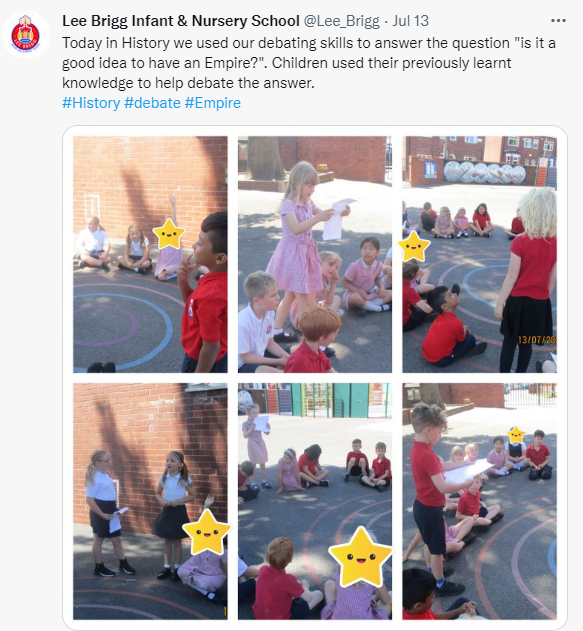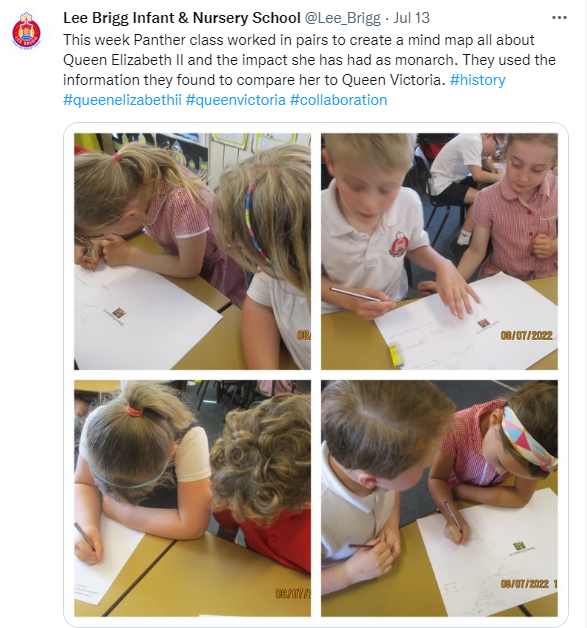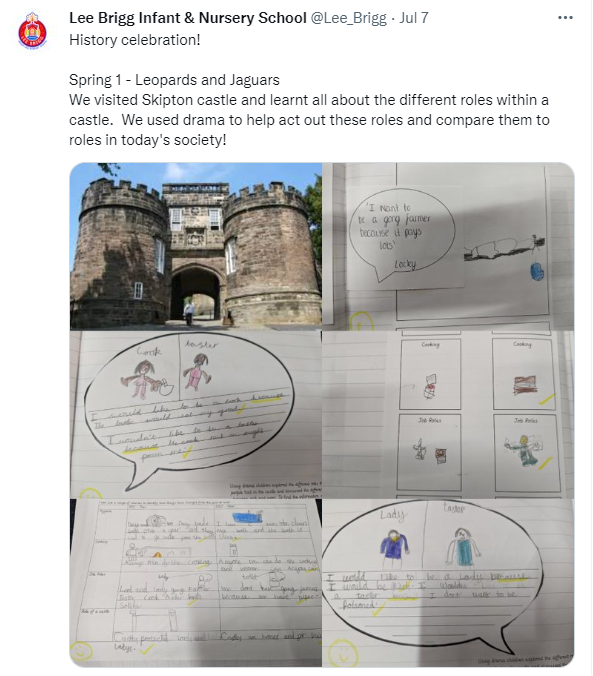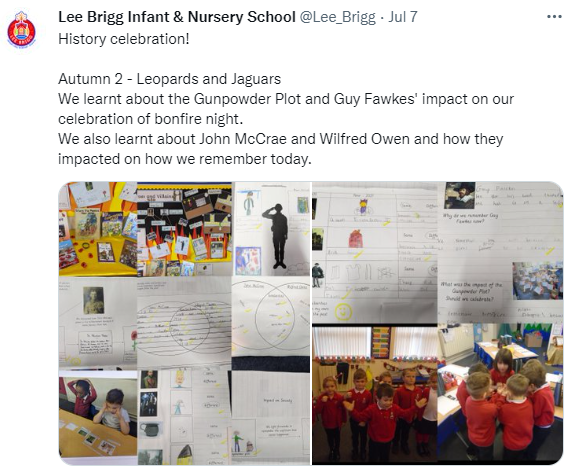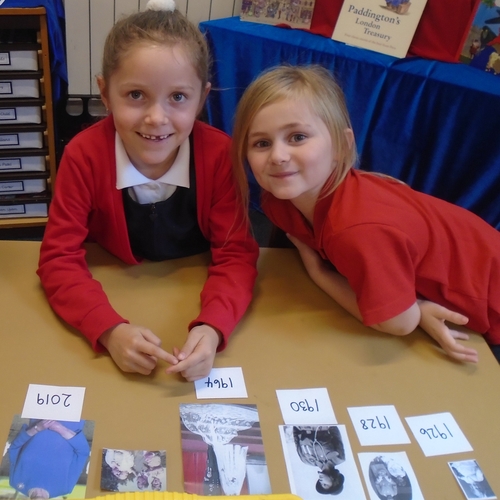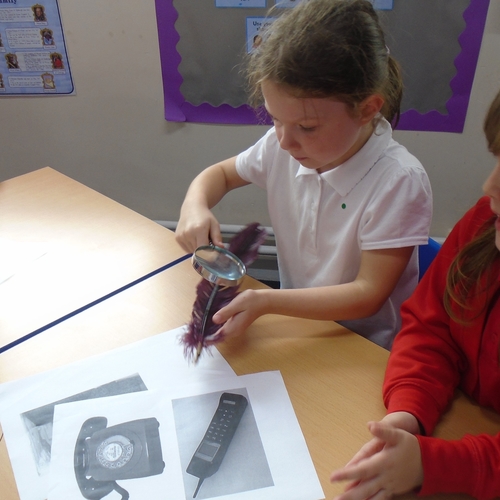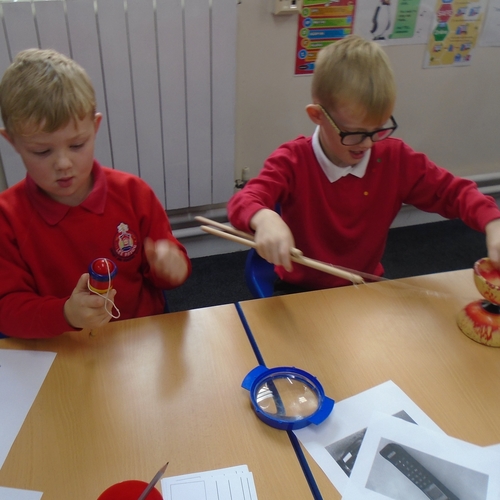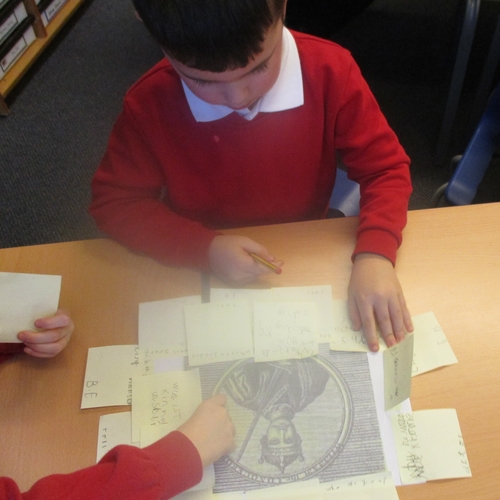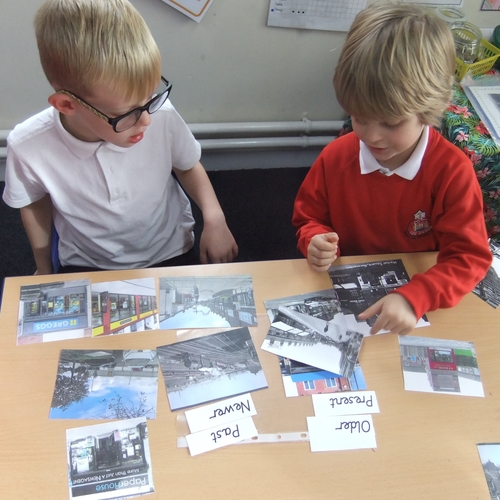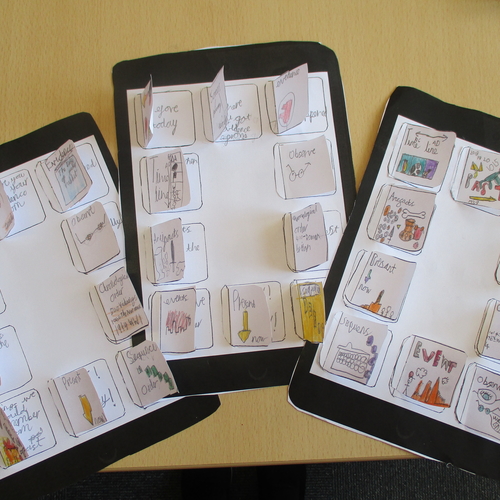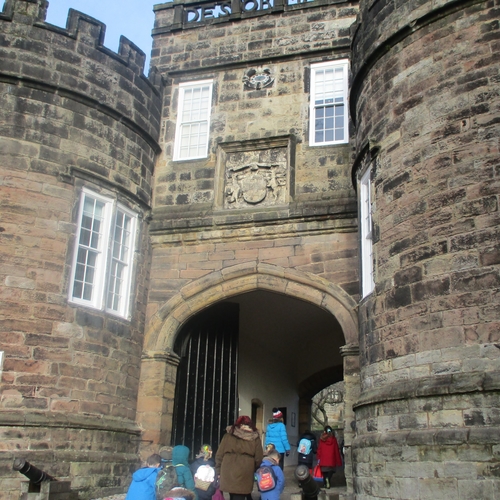Subject Leader : Miss Kilkenny
We are proud that our passion for History has been recognised when we were awarded the Historical Association (HA) Gold Quality Mark. The History Quality Mark Gold is awarded to schools that demonstrate a relentless passion to ensure effective learning and achievement through inspiring teaching that engages all pupils consistently across the s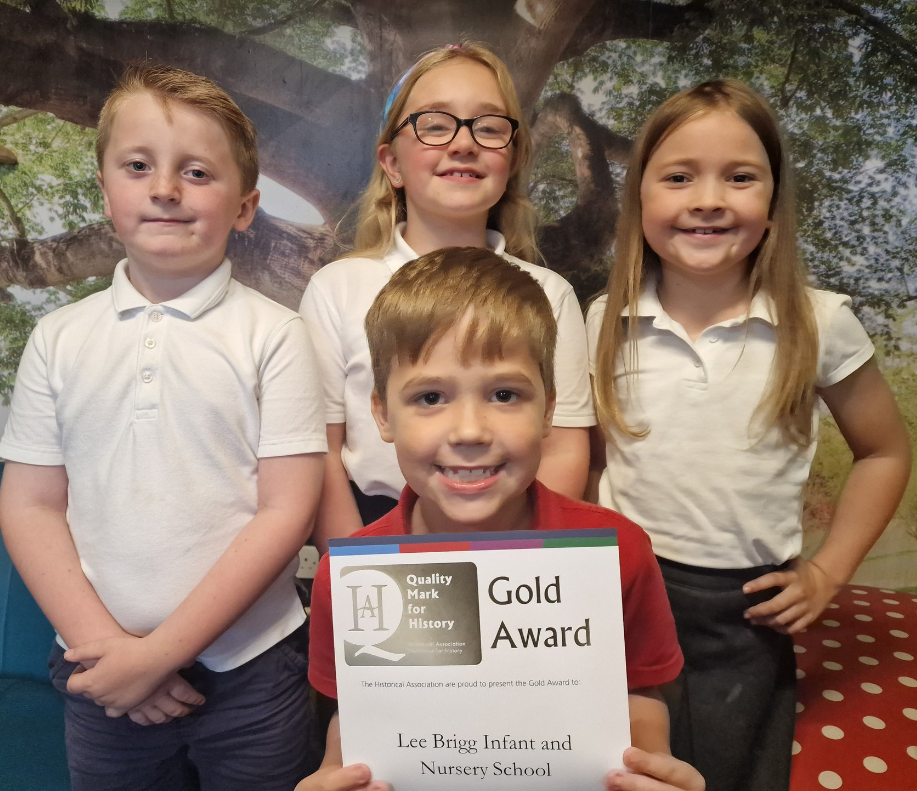 chool. The Quality Mark assess and values the history provision of the teacher, their department and the school and what is being offered to young people.
chool. The Quality Mark assess and values the history provision of the teacher, their department and the school and what is being offered to young people.
The Quality Mark provides a framework for success in which to maintain an outstanding provision of history for our school.
An assessment procedure delivered by independent Historical Association appointed assessors is undertaken. Our curriculum, teaching and learning was considered against the following qualities:
- Effective teaching and learning: This quality is concerned with ensuring effective learning through appropriate and motivating teaching that engages pupils consistently throughout the school.
- Leadership in history: ensuring that systems and structures are in place and used effectively to ensure that history enjoys a high status, reputation and profile in the school and beyond.
- Curriculum: the coherence, logic and appropriateness of the curriculum in the context of the school.
- Achievement: ensuring pupils achieve well and that their progress in the subject is appropriate to their ages and circumstances.
- Enrichment: ensuring that the school enriches teaching and learning in history through other subjects and resources/programmes beyond the history classroom.
The Primary Objectives of teaching History at Lee Brigg Infant & Nursery School are:
- To foster in children an interest and curiosity in the past
- To enable children to know about significant events and people in British history, and to appreciate how things have changed over time.
- To develop a sense of chronology.
- To help children understand society and their place in it so that they develop a sense of their cultural heritage.
- To develop in children the skills of enquiry, investigation, evaluation and interpretation
- To develop an understanding in children that differences are not a barrier to achievement
History at Lee Brigg Infant & Nursery School allows our children to develop a real sense of chronology and to understand how the past has influenced their lives today.
We teach our children to investigate people and events from the past and by doing so, develop their skills of enquiry and interpretation, alongside the key concepts of:
- Similarities and differences,
- Continuity and change
- Significance and impact.
History permeates throughout our curriculum and is one of our key subject drivers in developing the ‘Challenge & Educate’ side of our school curriculum. Through studying a range of people from the past and present, who have had an impact on our world today, children are taught to challenge past stereotypes connected to gender, wealth, disability and cultural background and are educated that differences should be celebrated and are not a barrier to achievement.
How is the content / theme chosen?
Whenever possible, we teach through a themed approach, to enable our children to embed and revisit learning, make connections and develop a greater depth of understanding within the subject. The content is chosen in order to make effective links with key cross-curricular themes, reflect expectations in the National Curriculum programmes of study and Early Years Foundation Stage (EYFS) framework, and engage and inspire children’s curiosity and interest in history.
The content may be adapted to meet the needs or interests of specific cohorts or link to specific events, which are taking place in the community or wider world at the time.
How do we ensure progression of knowledge and skills?
At Lee Brigg Infant & Nursery School we have in place, for each subject area, a knowledge and skills progression document, which is used for planning, to ensure sequenced and appropriate content for specific year groups. Teachers are clear on the learning and expectations for each year group, as this has been carefully selected and mapped out so that children are building on prior knowledge and skills each term and each year.
Within these documents there are opportunities for differentiation, in order to meet the needs of all learners.
How is the subject taught?
A two year, long term rolling programme maps out the coverage of the discrete teaching and learning opportunities for children to develop and embed specific skills and key knowledge in history. The knowledge content is carefully selected and skilfully taught alongside the key skills and historical concepts, which are threaded throughout the History curriculum. This allows children ample opportunities to revisit, reinforce and embed learning.
New vocabulary is taught, with the key emphasis on common words and phrases relating to passing of time. Although we actively introduce and are ambitious with the language we use, we understand the importance of not over complicating this language with very young children, but ensuring underlying principles and meanings of the words are taught and understood.
Within each History lesson, children are introduced to and reminded of key vocabulary. Questioning is used to check their understanding and prior knowledge, before new concepts, skills or knowledge are introduced.
Modelling is used by class teachers to clarify expectations, children are then given plentiful opportunities to consolidate, build upon and apply basic skills and knowledge, across a series of lessons, as well as across the year.
When children are learning about a subject through a discrete teaching sessions they are explicitly told that today they are going to be ‘historians.’ They are then reminded of the key skills that they will learn, use and develop within this subject.
In History these are:
We are learning to:
- ask and answer questions.
- put dates and events in chronological order.
- understand and learn about important events and people from the past.
- identify things that are the same or things that are different between now and in the past.
- identify how the past has changed things today.
In accordance with the National Curriculum Key Stage 1 children will be taught about:
- Changes within living memory, which are used to reveal aspects of change in national life.
- Events beyond living memory that are significant nationally or globally.
- The lives of significant individuals in the past who have contributed to national and international achievements.
- Significant historical events, people and places in their own locality.
In addition to discrete teaching in this subject, opportunities and links are made to history knowledge, skills and concepts throughout the year, ensuring that elements of the history are accessed by children continually as part of the curriculum on offer.
For example, chronology and using evidence are ongoing themes throughout the year. Local and national events are taught and referred to in an historical context and used as ‘mini’ learning projects. The lives and history of significant people nationally and globally are carefully chosen across subjects and year groups so that children are continually developing a sense of the past and the impact of people on our lives today.
Texts relating to historical events and people are planned to ensure progression and ambition between year groups.
This enables children to practise their skills throughout the year and use the language they have learnt which is associated with the past.
Teaching History in EYFS
In EYFS children look at their own lives and the lives of those closest to them. They describe special events and we aim for them to use past, present and future forms accurately when doing so. Books and stories are used as a way to introduce history topics and act as a stimulus for the children when comparing similarities and differences from the past.
Planning and teaching in EYFS is similar to that in Key Stage 1. The children are expected to develop a specific set of skills and knowledge appropriate to their age. This is often beyond the expectations that are set out in the end of year Early Learning Goals as we prepare our children with the knowledge and skills that they will need in history, ready for year 1. As well as topic work and the discrete teaching of skills and knowledge, children in EYFS are given the opportunity to continually practise and embed their skills and language, through the areas of provision set up in the indoor and outdoor learning environments.
How do we know that our children are making progress?
Ongoing assessments of the children’s knowledge and skills are made by the class teacher. Misconceptions are addressed and next steps carefully planned. Children’s outcomes are compared to the subject specific skills and knowledge documents. At the end of a block of discrete teaching (or term) subject leaders gather an overview of children’s outcomes in each subject area. This is used to plan appropriate next steps for their future learning, as well as provide an overview of learning within a subject area cross the whole school.
How do we promote Communication & Language (including reading), Personal, Social and Emotional Development and Physical Health and Wellbeing?
Our history curriculum introduces children to a range of new vocabulary, which they become confident in using. It allows them to practise asking questions and encourages them to articulate answers using evidence from historical sources. Children develop empathy with people from the past. They learn about their lives and how they had an impact on the world in which we live today.
History opens up our children’s eyes to the wider world. They discuss explorers and adventurers, learning about the different places they discovered, as well as the cultures and traditions that exist outside of their own experiences.
Our history curriculum allows our children to enhance and embed their reading skills. They read from sources of evidence and write about elements of the past from different perspectives.
What wider opportunities are provided for our children?
Children have the opportunity to participate in regular visits out to places with historical links, as well as work with visitors in school to enhance their understanding of history. For example, external drama workshop companies work with children, so that they can begin to understand what it was like to live through a historical event or another period in history. Visits around the locality and participating in local events, such as remembrance service in the village, allow children to reflect on and learn about the history of their locality.

